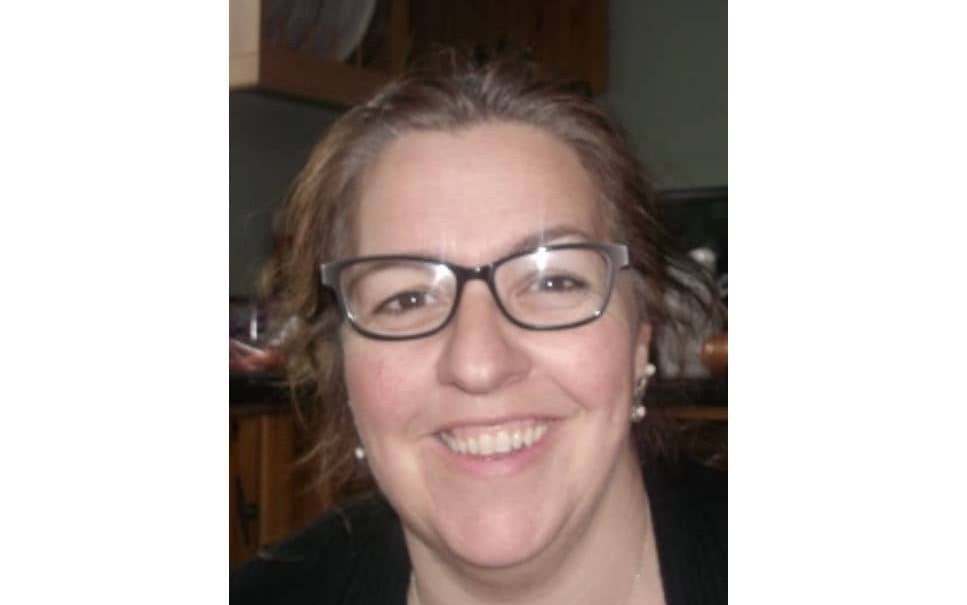Article written by Jillian Wheaton- a 50 year old woman who simply enjoys writing about her life. At the moment, her writing mainly involves tending to her grief. Jillian understands that grief is a very personal experience and each person will follow their own individual grief process. Her personal blog can be found at: abroadsthoughtsfromhome.wordpress.com

In the months since my brothers heartbreaking tragic death in May 2018 as a result of a fall while out with his hiking group, I have learned that I can only be an expert on my own grief. Nobody else can be ‘my expert’ . Just because I have experienced loss caused by the out of order death of my brother, does not make me an expert on anyone else’s grief.
Is my grief wrong?
I found myself researching ‘grief’, ‘bereavement’ and ‘coping with grief’ online in the hope I would find some way of managing my grief better. Some way of reducing the immense pain and sense of loss caused by his death. I don’t think this is actually possible. There is no road map, no prescriptive text that will reduce the quotient of grief we carry with us in our own individual way. Grief is the price we pay for love and one’s grief is exactly that – LOVE. Grief is as individual as love. It is as unique as the person experiencing it and the person whose loss they grieve. We may share our loss with many but we have to navigate our way within our own landscape of grief.
Online Insomnia
I will be the first to admit that initially my online research was far from in-depth. Fuelled by insomnia and the inability to concentrate for any extended period of time, my cursory online interaction with Dr. Google kept throwing up bite size pieces of information in variable quality and benefit. To be blunt, there is a lot of horse shit written about death and grief. From pious platitudes and clichés to over simplified theories, further reduced to lazy ‘cut and paste’ jobs.
I have found a lot of social media to be unhelpful also. I could not identify with what I consider the tyranny of false positivity. Time and time again my late night ventures into the online world of grief would throw up ‘The Five Stages of Grief’. How I started to loathe Elizabeth Kubler Ross and I mean really loath. The persuasiveness of this grief theory that bore little or no resemblance to my grieving reality really infuriated me.
I also started thinking that I wasn’t getting this “grief process” right. My grief was not allowing itself to move in an ordered timeline capable of fitting into neat sanitized blocks that could be ticked off like a to do list. I could not understand why a grief theory dating back to the late 1960’s appeared to have so much currency today. Has no research been carried out since? Well there has been plenty! However, much of it does not appear to have trickled down into the public consciousness quite like the stage theory model has. I also discovered that my loathing of Elizabeth Kubler Ross was somewhat misplaced, so let me deal with that first.
Elizabeth Kubler Ross ‘Grief and Grieving’
Kubler Ross was a Swiss-American psychiatrist born on July 8th, 1926. Her book “On Death and Dying”, published in 1969 was never a study on grief and bereavement. It was based on her work with terminally ill patients at the University of Chicago Medical School. Neither was it a research study, it is a book based on description, observation and reflection from Ross’s conversations with individuals who were dying. Its central tenet was to communicate how important it is to listen to what the dying have to tell us about their needs.
The so-called stage theory in this book is openly described as merely a set of common categories which emerged from her interviews with people who received a terminal diagnosis over a two and a half year period. The categories were artificially isolated and separately described so that Elizabeth could discuss these experiences more clearly and simply. Her five stage model was really an examination of the emotional states people experienced after receiving a terminal diagnosis. She’s reported to have regretted writing them in a way that was misunderstood. She also didn’t believe that they happened in a neat, linear order for a prescribed period of time. In her book, “On Grief and Grieving”, published posthumously in 2004, Kubler states “They were never meant to help tuck messy emotions into neat packages”. Now “messy” is a word I can relate to.
One Size of Grief Fits All?
So back to the theories of grief. My search started by entering “Beyond Kubler” in the search engine. It transpires that “grief” and all it entails is a huge field of study that has continued to develop and evolve since the days of Freud. I am not going to even attempt to go down the reductive route of providing basic summaries as I truly believe that it would be a disservice. I am unwilling to do this as grieving is complex and one size of theory most definitely does not fit all. There were bits of some writings I could relate to and identify with and some not at all.
I’m still only skimming the surface of the amount of material out there on grief after 8 months of it being my daily landscape. Truth be told, it is only in the last couple of months or so that I have been able to resume reading anything longer than the back of a cereal box. The secondary reason is due to the fact that as these theories come in and out of vogue. An unintended consequence has been that they are taken up by society and its commentators as the norms. They become, in effect, rules of grieving that attempt to specify who, what, where, when, how, how long and for whom people should grieve.
No Restoration of a Previous ‘Normal’
It is hard enough to live your life after the death of a loved one without feeling judged. There is no going back, no restoration of a previous normal. Ultimately, grief is a very personal experience which belongs to the person experiencing it. If you find yourself reading this and experiencing grief, I wish you strength to find your own grieving path; one that you feel supported on. Try not to worry about other people’s discomfort with your pain and your sadness. It is your time to grieve, without artificial constraints of other peoples ‘expertise’.
For anyone who wishes to do their own research, I found Christopher Hall’s, (MAPS Director, Australian Centre for Grief and Bereavement) publication titled “Beyond Kubler-Ross: Recent Developments in our Understanding of Grief & Bereavement“, an excellent starting point.
Also, for anyone wishing to support a friend or a family member who is grieving I recommend you read (at the very least), the appendix “How to Help a Grieving Friend” in Megan Devine’s book, “Its Ok That You’re Not Ok- Meeting Grief and Loss in a Culture That Doesn’t Understand”. I found the entire book helpful for myself and am grateful to have had it put my way.
Sad Peace
On a personal note, I found that writing about my feelings, my brother, my loss and grief one of the most helpful coping mechanisms in living with my grief. It was about catching what activity gave me even fleeting moments of what I call ‘sad peace’. Writing was something that required no effort from me and is what helped me and continues to help me to live through the days of overwhelm, survival and times of sad peace.
I hope, if needed, you find yours.
